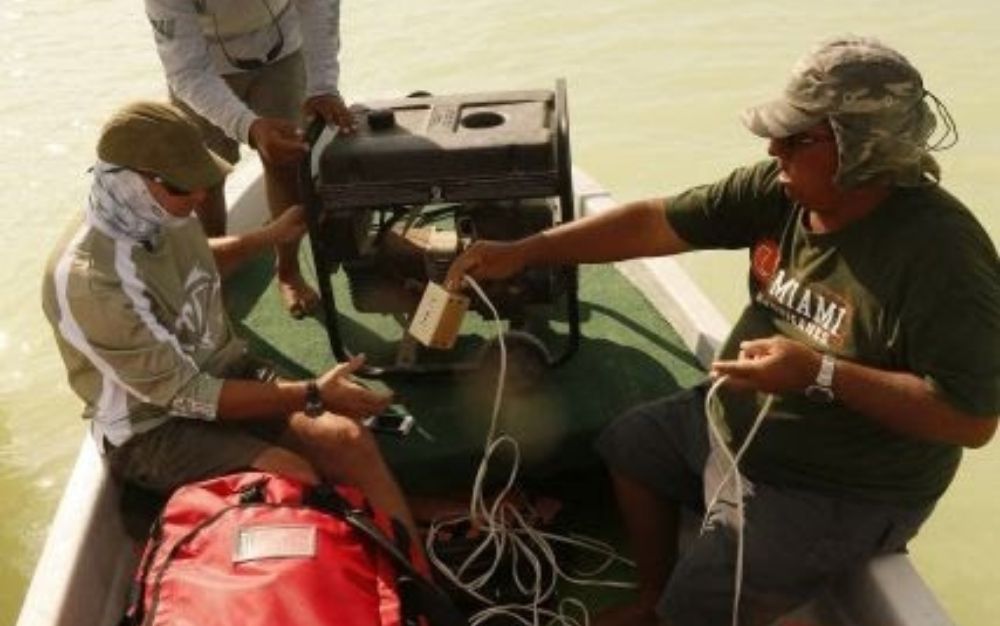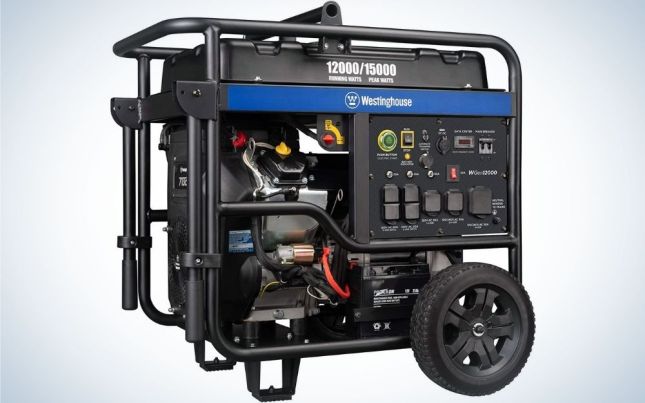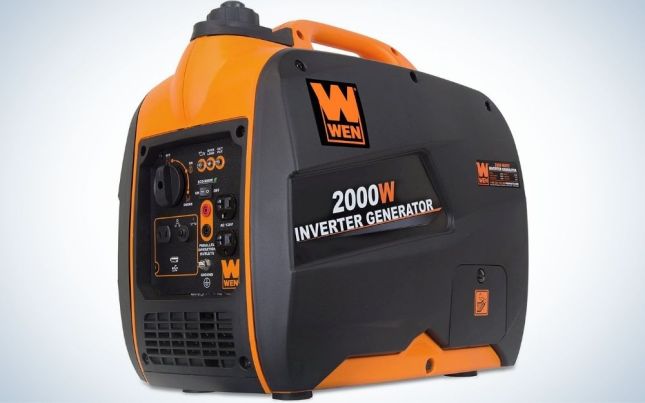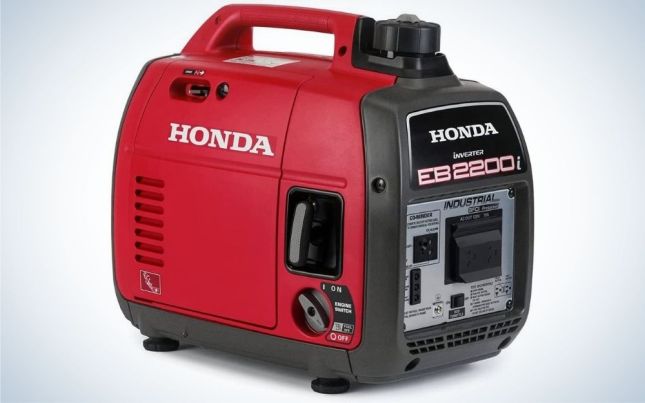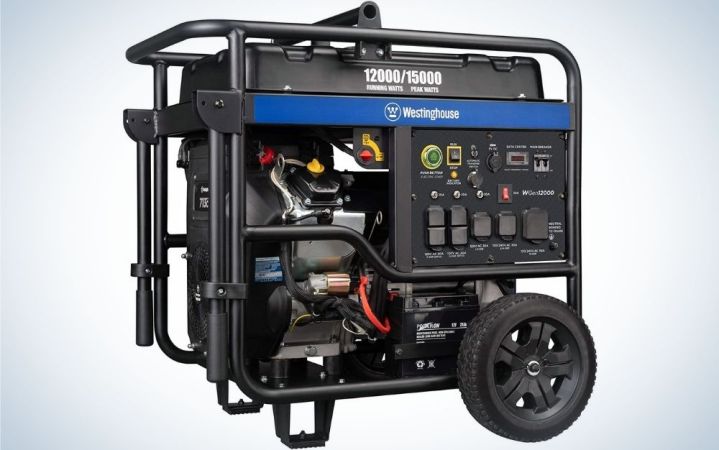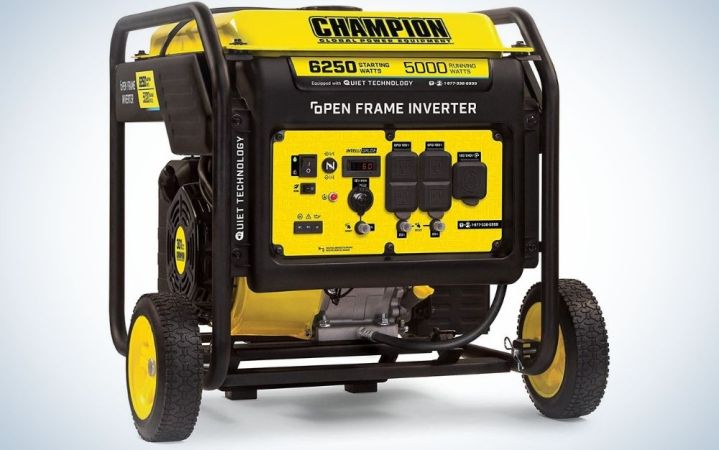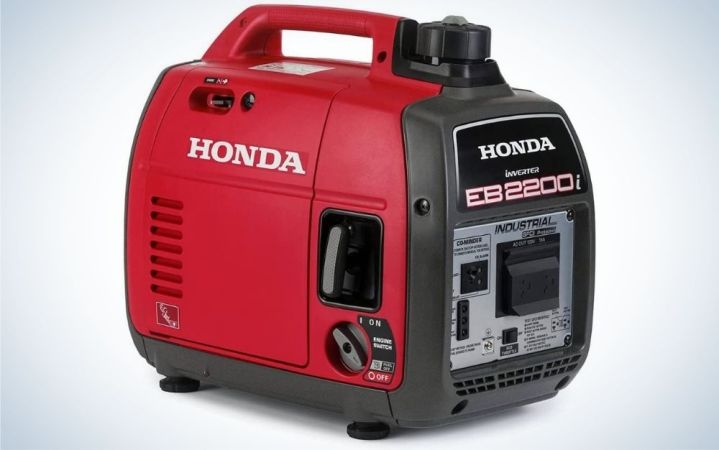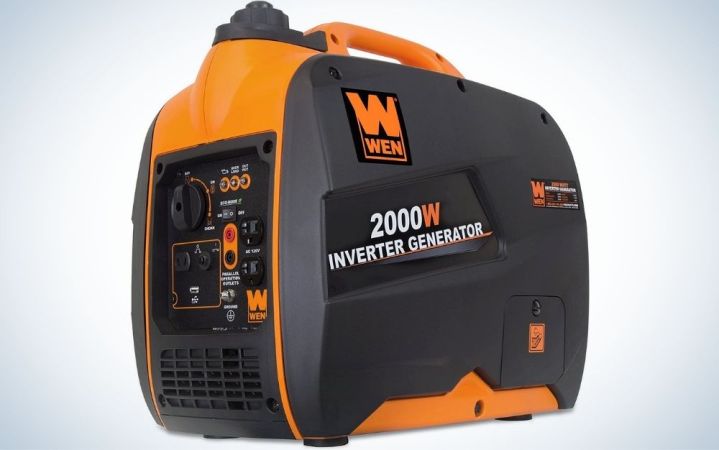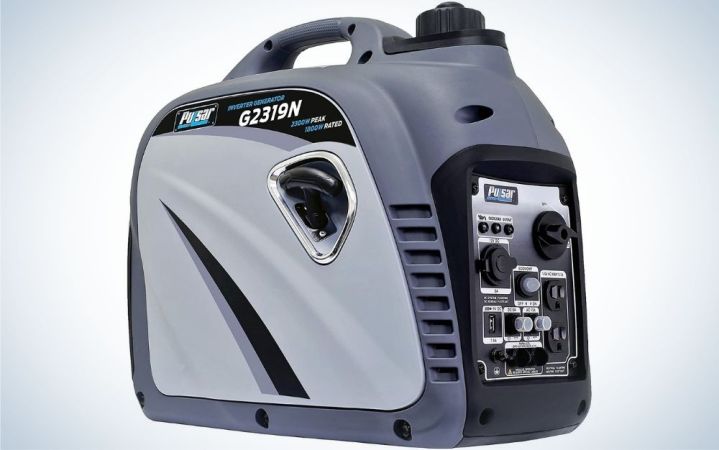We may earn revenue from the products available on this page and participate in affiliate programs. Learn More ›
Extreme weather seems to be the norm these days. That means investing in the best gas generator to supply backup power during an outage may no longer be a luxury––it could soon become a necessity. Of course, not all gas generators are for emergency use. You can also find portable gas generators to power your next campout. If you’re an outdoors person, you have two reasons to buy a generator.
But finding the best gas generator can be more difficult than trying to navigate dark woods without a flashlight. For instance, how much wattage do you need? Should you invest in a quiet generator? Should you get one that’s portable?
- Best for Homes: Westinghouse WGen12000 Ultra Duty Portable Generator
- Best Quiet: Champion Power Equipment 100519 6250-Watt Gas Generator
- Best Portable: Honda EU2200IC Companion Portable Generator
- Best for Nighttime Use: WEN 56200i Inverter Generator
- Best Budget: Pulsar G2319N 2,300W Portable Gas-Powered Inverter Generator
Best Gas Generators: Reviews & Recommendations
Best for Homes: Westinghouse WGen12000 Ultra Duty Portable Generator
Wowing Wattage
Producing 12,000 watts of running power, this backup generator has enough juice for the whole house. And yet the 713cc engine’s 74dBA isn’t that much louder than a vacuum cleaner. Plus the electricity is fairly clean, with less than 5% total harmonic distortion. The 10.5 gallon fuel tank in this whole house generator can run for 16 hours at 25% capacity, and handy features include a gauge that monitors the voltage and an automatic idling that saves fuel. The house generator is hefty at 352 pounds, but it features wheels for relatively easy transport.
Best Quiet: Champion Power Equipment 100519 6250-Watt Gas Generator
Quiet and Powerful
If neighboring houses or camps are close and your home doesn’t require much energy to power, look for a house generator that trades wattage and size for fewer decibels. This 121-pound portable gas generator gives you that, offering an ample 5,000 watts of running power producing just 69dBA of noise. With less than 3% total harmonic distortion, the electricity from this 301cc engine is clean, and the 4.2 gallon fuel tank can run for 13.5 hours. Northerners will appreciate the Cold Start, which ensures low temps won’t slow the ignition.
Best Portable: Honda EU2200IC Companion Portable Generator
Go With the Flow
Like the WEN, this Honda portable generator is also a small generator. At about 21 x 12 x 20 and 54 pounds, it’ll easily fit in the trunk or truck bed. It’s also a quiet generator, emitting 57dBA at a full load and just 48dBA at a quarter load. The running wattage is 1,800, and .95 gallons of fuel can generate up to 8.1 hours of runtime at a quarter load––enough for the entire workday at the construction site.
Best for Nighttime Use: WEN 56200i Inverter Generator
Silent Site
When you’re enjoying nature, the last thing you want is a portable generator that disturbs the peace. Emitting just 51dBA, the WEN is truly a quiet generator that can still provide plenty of power. At 1600 watts of running power, it wouldn’t work well as a backup generator for the whole house, but the quiet generator is perfect for electrifying the campsite. The 1 gallon tank can support nearly 10 hours of use at a quarter power, and at just 48 pounds and slightly bigger than a breadbox, it definitely qualifies as a small generator.
Best Budget: Pulsar G2319N 2,300W Portable Gas-Powered Inverter Generator
Gas Savings
At just under $400, this gas-powered inverter generator isn’t that much cheaper than the WEN listed above. But for $30 less, you get 200 running watts more (total of 1,800 watts). Of course, you also add a few decibels (to the tune of 59dBA). With a 1.18 gallon tank, the Pulsar can keep the electricity pulsing for 6 hours at half capacity, and at just 47 pounds, it’s a very portable generator.
FAQs
The ins and outs of finding the right gas generator for you.
How big of a gas generator you need depends on what you’re looking to power. If you want a whole house generator, you need a unit with enough wattage to support big appliances like a 600W refrigerator, a 4,500W water heater, and a 1,450W microwave. If you’re camping or tailgating, and are just hoping to plug in your 320W television or 4W smartphone, less than 2,000 running watts will do.
How long a gas generator can run nonstop depends largely on the size of the fuel tank and how much you’re running. Some of the best gas generators have 10 gallon tanks that can support nearly a day of use, so long as they aren’t being pushed to full capacity. Other small generators provide a few hours of running time, since their fuel tanks top at about 1 gallon.
Choosing a gas generator comes down to what you want to power and for how long. If you’re looking for a backup generator for your whole house, you should choose a larger generator that produces more wattage and more runtime. Of course, small generators produce less noise than large generators, which can be great for camping and tailgating, but would fall short if you try to use one as a whole house generator.
Things to Consider When Shopping for the Best Gas Generator
The best gas generator to choose for you depends on a lot of variables. Do you need to power an entire house? Is noise a consideration? Will you be transporting the generator? Do you want a generator for a campsite? Is cost a consideration? Check our following guide to zero in one what type of generator to get, along with some recommended models.
How Much Power Do You Need?
A gas powered generator needs to be able to supply electricity to the devices you need and want to run. That means you have to pay attention to the generator’s listed running wattage. The best gas generators can produce anywhere from a few hundred watts to more than 10,000 watts. If you multiply the voltage (120V in the U.S.) by the amperage of a product, you’ll find the wattage that’s required to run a particular device. Consider that a refrigerator requires roughly 600 watts, an incandescent light bulb can be up to 80 watts per bulb, an air conditioner requires 1,000 watts, and a sump pump can require 1,500 watts. So if you’re looking for a backup generator that can power a lot of items, you’ll need a generator on the high end of the wattage output scale.
Do You Want Something for Nighttime Use?
The best gas generators can run anywhere between a few hours to nearly a day, a difference largely determined by the size of the gas tank and how much the generator is powering. Tanks in gas-powered generators that take standard fuel found at any pump can span from less than a gallon to more than 10 gallons. Note that the size of the tank also helps determine the overall size and weight of the generator. If you want a generator mainly for nighttime use, such as powering lights or appliances, a quiet generator with a small tank will probably do just fine.
Can a Small, Portable Generator Meet your Needs?
A portable generator can weigh less than 50 pounds and take up roughly as little trunk space as a duffel bag. But gas generators can also weigh more than 300 pounds, making it pretty difficult––even if it has wheels and a handle––to transport much farther than from the garage to the necessary 20 feet away from your home to operate. Your intended use determines what size you’re looking for. Small generators will produce less power and have shorter runtimes than larger backup generators, but they will also be quieter and easier to move.
Do You Want Something Quiet?
Producing electricity is noisy, and most gas-powered generators sit somewhere between 50 and 100 decibels. That’s roughly the difference between listening to a conversation in your home and listening to a jet taking off. Of course, more wattage typically means a higher decibel level, but it’s not necessarily a one-to-one equation. So if you live in a more densely populated area where your neighbors are right on top of you, or you’re looking for a portable gas generator to take into the solitude of the outdoors, you’ll want a quiet generator with a lower decibel count.
Final Thoughts
Buying the best gas generator is a power move. It may keep you and your family comfortable when camping or safe during a natural disaster. Look for a unit that has enough wattage to power the devices you need to power without pumping in too many decibels.
- Best for Homes: Westinghouse WGen12000 Ultra Duty Portable Generator
- Best Quiet: Champion Power Equipment 100519 6250-Watt Gas Generator
- Best Portable: Honda EU2200IC Companion Portable Generator
- Best for Nighttime Use: WEN 56200i Inverter Generator
- Best Budget: Pulsar G2319N 2,300W Portable Gas-Powered Inverter Generator
